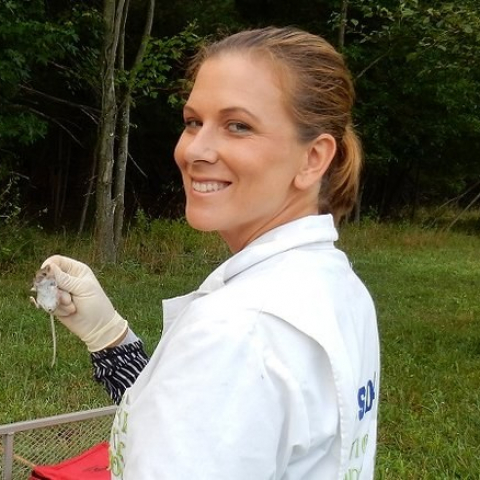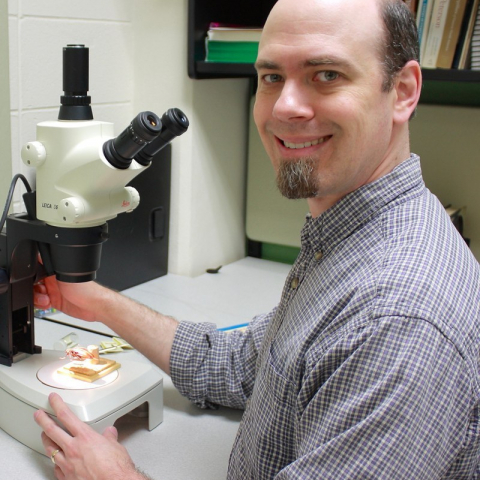Behavior, Pheromones, and Sensory Biology

The odor-directed behavior and the underlying neurobiological factors in animals from humans to insects, and from applied to evolutionary perspectives.
Topics:
- Food Science
- Social Behavior
- Evolution of Reproductive Signaling
- Animal Behavior
- Neurobiology
- Olfaction/Gustation
- Electrophysiology
Jared Ali
Associate Chair, Intercollege Graduate Degree Program in Ecology; Director of the Center for Chemical Ecology; Associate Professor of Entomology
Behavior and chemical ecology of multi-trophic interactions, including plant responses to below-ground herbivory and nematode. Insect community ecology, chemical ecology, and coevolution. Trophic cascades, above- and below-ground interactions, chemotaxis of soil nematodes, and evolution of plant defense strategies.
Etya Amsalem
Associate Professor of Entomology
The evolutionary development and the mechanistic basis of social behavior in insects using an integrative approach encompassing chemical, genetic and physiological tools
Francisco Dini-Andreote
Huck Early Career Chair in Microbial Community Ecology, Associate Professor of Plant Science
Microbiome, plant-microbe interactions, and community ecology. Harnessing the plant microbiome to enhance protection against biotic and abiotic stresses.
Gary Felton
Professor and Department Head of Entomology
Plant-herbivore interactions. Adaptive responses of herbivores to plant defenses. Herbivore cues recognized by plants with specific focus on biochemical and molecular analysis of salivary secretions.
Christina Grozinger
Director of the Huck Institutes of the Life Sciences; Publius Vergilius Maro Professor and Huck Scholar of Entomology
Genomics of social behavior and health in bees
Sara Hermann
Assistant Professor of Arthropod Ecology and Trophic Interactions
Kelli Hoover
Professor of Entomology
Invasive species of forest insects; plant-insect-entomopathogen interactions; impacts of plants on pathogenesis; biological control of hemlock woolly adelgid
Erika Machtinger
Associate Professor of Entomology
Veterinary entomology, including vector-borne diseases. Focus is on ecology and behavior associated with host-parasite interactions to improve or develop new control methods.
James Marden
Associate Director of Operations, Huck Institutes of the Life Sciences; Professor of Biology
How physiological variation within species affects their ecology and evolution. Primarily with insects, but recently also with plants, and a particular interest in allelic variation in the pathogen resistance genes of tropical trees.
Rob Mitchell
Associate Professor of Chemical Ecology
Entomology, chemical ecology, and chemoreception.
Tim Miyashiro
Professor of Biochemistry and Molecular Biology
How bacteria adapt to a host environment. The mutualistic symbiosis established between the Hawaiian bobtail squid (Euprymna scolopes) and a bioluminescent bacterium (Vibrio fischeri).
Harland Patch
Assistant Research Professor; Research Associate of Entomology
Tanya Renner
Associate Professor of Entomology
Evolution of chemical and structural defense. Molecular evolution, evolutionary genomics, and transcriptomics. Origins and evolution of carnivorous plants.



















